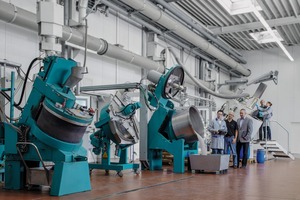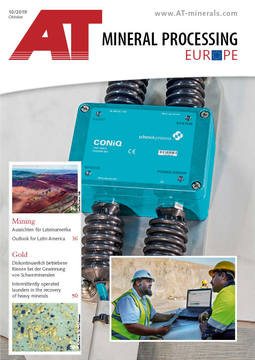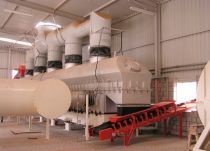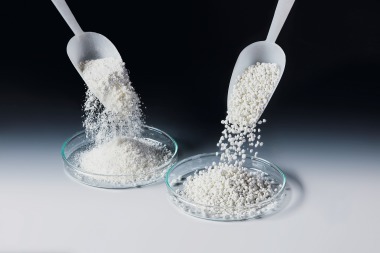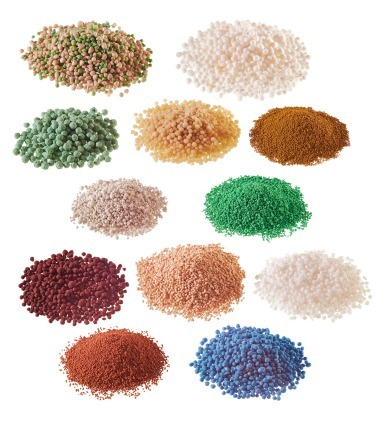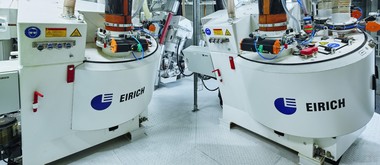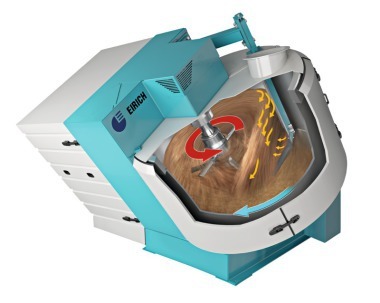Production of granulates for use in fluidized-bed reactors
Fluidized-bed methods are very important e.g. in the drying of granular media, during the combustion of coal, substitute fuels or sewage sludge, and increasingly also for metallurgical processes such as ore beneficiation. In many cases the feed material is a granulate, e.g. with a range of grain sizes from 0.5 to 1 mm. Often the “raw materials” are available as slurries or (filter) dusts. With the granulating technology from EIRICH, it is possible to convert these starting materials within a short batch time of e.g. 3 to 5 min into a very homogeneous granulate.
On sizes from 1 l to 3000 l, the EIRICH mixer used for granulating only has a single moving tool, the so-called rotor, while larger machines have two. There is no need for fast-running choppers that are subject to intensive wear of the type required for plowshare mixers. Depending on the task, the rotor can run at speeds up to more than 30 m/s. This makes it possible to generate high shear forces and distribute liquids quickly. A hybrid mixing process permits variable speeds during the preparation process, depending on whether dry or moist mixing is required first, followed by granulation afterwards. Varying the tools and speeds can have a considerable influence on the grain spectrum; granules with a d50 value ranging from 100 µm to more than 5 mm are possible, depending on the material.
EIRICH mixers are used in many industries as granulating mixers for everything from ’A’ for active coal to ’Z’ for zeolite; the investment costs are relatively low and the systems require low maintenance. Additional capabilities of this mixer are also utilized. It is important for recycling processes that slurries and dusts can be processed into granulates. For the production of fertilizers, it is important that the granulates can be coated in the mixer, etc.
EIRICH will help interested parties to find the least expensive / best conditions for the granulating process. At the test center in Hardheim and at many other sites in the EIRICH Group worldwide, feasibility studies can be performed with customer materials all year round to investigate the suitability of input materials for granulating processes.

